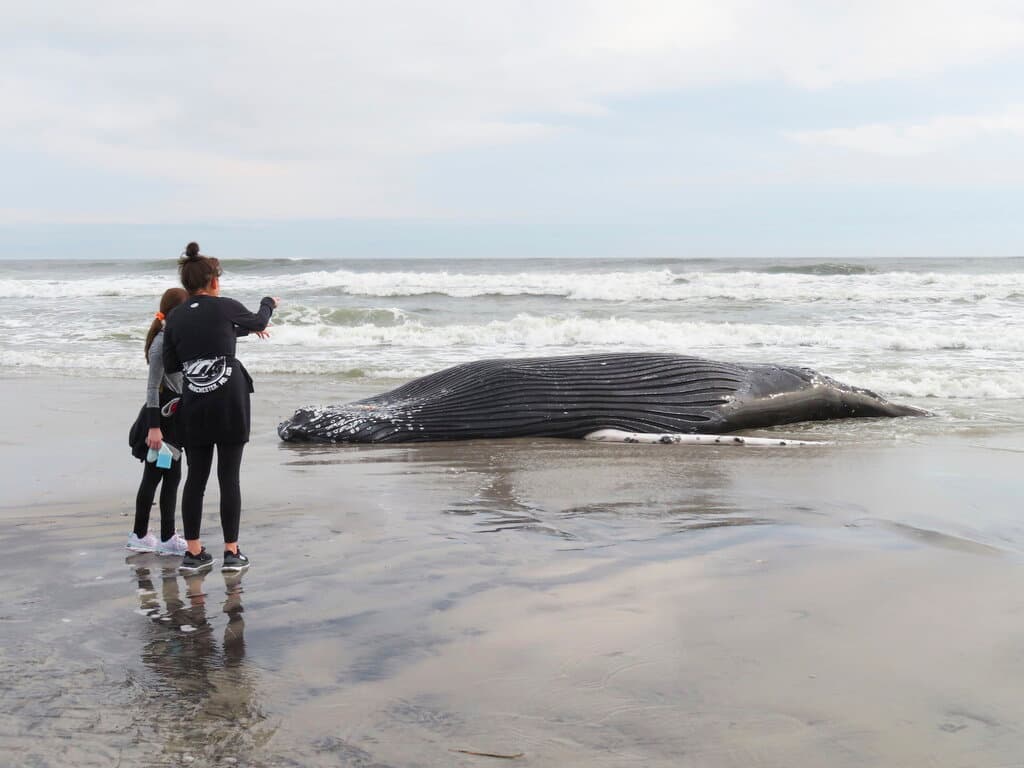Biden Climate Agenda Runs Aground Over Unexplained Whale Deaths
At stake is President Biden’s signature clean energy initiative to develop offshore wind turbine farms up and down the east coast — an integral part of his agenda to tackle climate change.

Federal energy and environmental officials are moving to try to quash a battle between environmental groups over whether wind turbine survey work off the coast of New Jersey is causing the deaths of whales in the Northeast, saying definitively Wednesday that there is no evidence to support these claims.
Please check your email.
A verification code has been sent to
Didn't get a code? Click to resend.
To continue reading, please select:
Enter your email to read for FREE
Get 1 FREE article
Join the Sun for a PENNY A DAY
$0.01/day for 60 days
Cancel anytime
100% ad free experience
Unlimited article and commenting access
Full annual dues ($120) billed after 60 days

